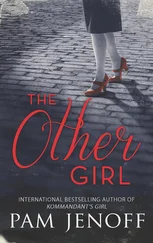And she-silently reminding herself that nature maintains its own aristocracy of value and virtue-had no difficulty promising this, if he would give her authority over the hiring and firing of the upper servants. Life would be easier and better, she thought, if she had people about her whom she could trust.
After which promise she bent her rosebud lips into a smile with just a twist of bitterness at its corner, graciously lifted her thin lawn nightdress, and parted her legs…
… Nine months later to the day presenting him with baby William, who looked every bit as much like his lordship as little Walter, though Will turned out kinder and a bit more intelligent than his brother Wat.
The couple honored their promises to each other, more or less, over the years. Emilia kept her husband’s secret-after she’d finally guessed it, with some amusement-rather better than she’d kept her own. For there had been a lapse: one mysterious attachment on the marchioness’s part had been cause for discussion among the gentlemen in their clubs and ladies in their drawing rooms (with some consequent unpleasantness at Rowen). Emilia had to take some rather extreme measures in order to divert the world’s attention-but on the whole she managed it quite well.
And so, as Belle, Kit, and Georgy followed their less exuberantly conceived brothers into the world, the marquess gave them his name without protest. Without much affection, it was true, but then, he had very little affection for anyone except that inappropriate personage he continued to love until he died, sometime after his second son, Will, was killed in Spain.

Emilia-now the dowager marchioness, and resident in Paris since the autumn after Waterloo-doesn’t usually devote much thought to her late husband. But this morning she’s entertained a caller whose presence has brought back the events of almost half a century ago. So many years gone by, she thinks, just fancy what a story it would make.
She’s still beautiful: a bit plumper, the luxuriant black curls striped with silver, cut shorter and caught up in a becoming Grecian knot. Her smile, above a decidedly more rounded chin, takes an ironical curve as she thinks of her first sweet baby rather comically grown to the stodgy Ninth Marquess. She raises her chin, remembering her moment of bravery, the depth of her need. Do all stories begin at a moment of great need? But Emilia doesn’t know about all stories. Only her own.
She thinks of other stories, ended too quickly or never really begun. Of her other children: Will, buried in Spain; beautiful, proper Belle, all but buried in Mayfair (at least to Emilia’s mind); Georgy, a charming rake, rather as one would expect.
While as for Kit, her third and most troublesome son, now there’s a story: people in the countryside still like to talk about how the third Stansell boy ran away with Joshua Penley’s youngest daughter, Mary. Kit has survived the war-thank heaven for that -and with some distinction too. But Kit had been a fighter since childhood-his elopement made the marquess angrier than anything Emilia ever managed to do. Emilia isn’t surprised by Kit’s success in military affairs. What continues to plague her is his difficulty at love.
She’s always liked Mary. She liked Mrs. Penley as well; in fact, Emilia had confided a few interesting things to her, a decade ago upon the occasion of the young people’s elopement. Not that the two women were ever friends. A pity, but such a thing would have been impossible.
Ah yes, Mary’s call this morning has brought it all back, and most particularly the story of Kit and Mary, the sadness of their marriage ending in separation. Still, Emilia hasn’t given up all hope. It had been agreeable to be able to do the young woman a favor this morning. Emilia herself will be returning quite soon to England. The story isn’t over yet.

NORMANDY, MAY 1817
The road was smoother here, winding closer to the city gates. The borrowed traveling carriage wasn’t jolting so fiercely on its springs; Lady Rowen’s coachman had managed to coax the exhausted horses into a gentle trot. Peggy, the maid, had fallen asleep on the backward-facing seat, head lolling against blue velvet, mouth slightly agape, apple cheeks glowing from the day’s rain and wind.
A Dutch painting .
Mary Stansell, née Penley, congratulated herself on the justness of her observation. Oh yes, very much a Dutch painting, all earthly flesh, rich textile, and pure, transcendent light.
She smiled at her own cleverness. And then she frowned uncertainly.
Did the Dutch do moonlight? In truth she had no idea; she’d seen so many paintings this year that they blurred in her memory.
The clouds had lifted. Mary wiped her breath from the glass to stare up at the moon shedding its beams through the coach’s window. After a beastly hard day of travel, the pale illumination made a pleasing composition from a muddle of objects on the floor-baskets, books, and parcels; maid’s and mistress’s muddy boots; and (hell and botheration!) a ragged strip of muslin trailing from beneath Mary’s skirts.
She’d stepped through the hem of her petticoat; poor Peggy would have to stitch it up when they arrived at the inn.
Her mouth twisted. Poor Peggy indeed.
No, that was unfair. It was hardly the maid’s fault that they were short of fresh linen; it hadn’t been Peggy’s idea to wait so long, and then to quit Paris so suddenly, with no time to send the last bundle to the laundress. The girl had done what she could to keep things nice along the journey’s way. And she was certainly entitled to an innocent flirtation.
If innocent was what one might properly call the curve that had suddenly and completely reshaped Peggy’s soft baby lips. Mary watched in fascination as a flush started somewhere at the base of the plump neck, rosy bright pink spreading upward now, beneath the freckled cheeks’ surface. Blissfully unaware of moonlight and mistress both, her young chambermaid was in the thrall of a delightfully wicked dream.
Or was Mary simply imagining it, projecting, as though by magic lantern, her own unruly desires onto the screen of Peggy’s wide, guileless countenance?
It was a diverting notion. Because she’d had it on no less authority than Mr. Shelley that she was sadly deficient in imagination. He’d told her as much last summer, when she’d declined to continue traveling with him and the rest of his household.
Ah, but you see, he’d protested, we are not merely a household. Warming to his subject, eyes sparkling beneath his wide brow, pale schoolboy curls stirred by the wind off the Swiss mountain lake, he spoke of idealism, a leap into mankind’s future, the imagination’s mortal reach beyond the bounds of petty conventional morality-with himself, his beautiful beloved Miss Godwin, and Miss Godwin’s rather earthier stepsister, at the center of their new bold Eden.
Tactfully, she’d swallowed back the response that had at first sprung to her lips: that it hardly took imagination to see who had the most to gain from all this rampant idealism. Checking her words was a hard-won skill; a decade ago she might have delivered a rebuke stinging enough to redden the young genius’s pretty ears. Since then, however, she’d learned the art of gentle refusal, the helpless shrug and self-deprecating smile. I’m sadly bound to my obligations, sir; just think of all the precious letters of introduction I’ve got, expeditions arranged, sights and monuments to visit.
Читать дальше














